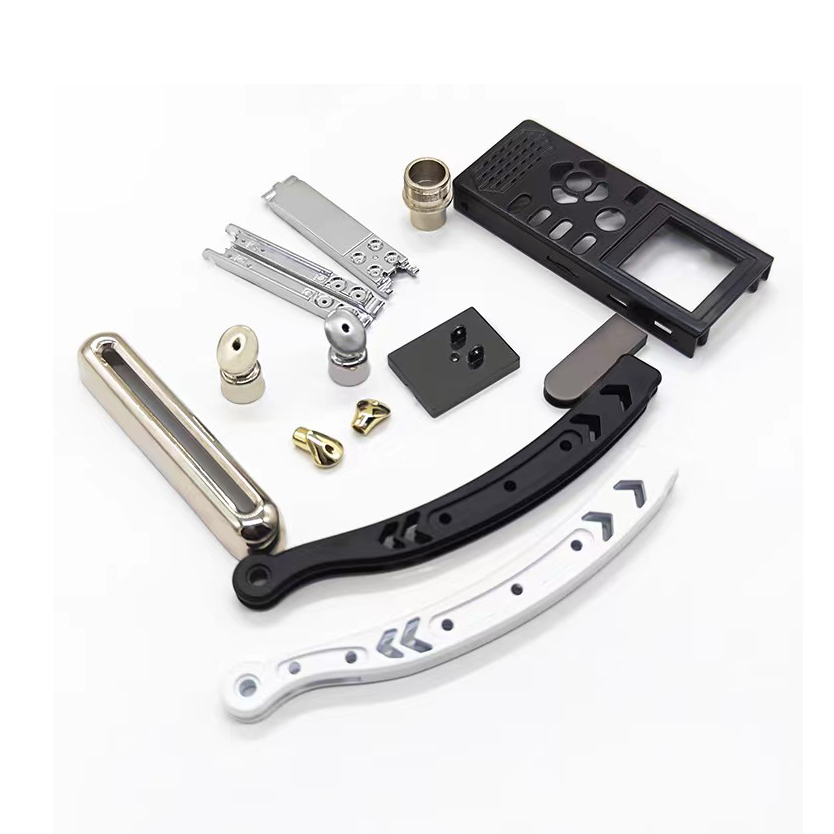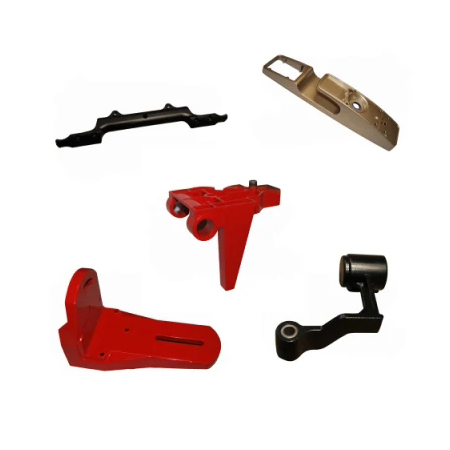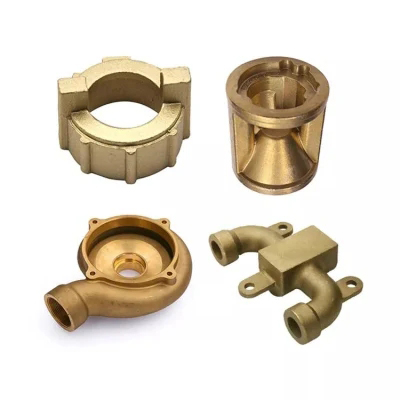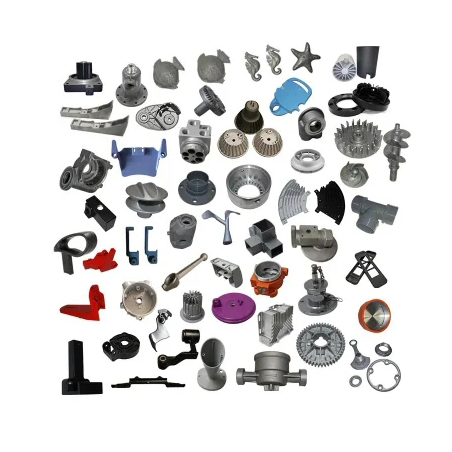 +86-13516964051
+86-13516964051
Aluminum alloy casting: professional surface treatment solutions
description1

Overview of aluminum alloy surface treatment
Aluminum alloy surface treatment is to change the properties, morphology, chemical composition and microstructure of the surface of aluminum alloy castings by physical or chemical methods to obtain a surface state that meets the requirements of use. Its purpose is to improve the corrosion resistance, wear resistance, decorativeness of castings, improve conductivity, weldability and other properties, and extend the service life of products.

Anodizing treatment
Anodizing is to place aluminum alloy in the corresponding electrolyte, make it an anode, and form a dense oxide film on the aluminum surface through electrolysis. This oxide film has good corrosion resistance and can effectively prevent oxidation and corrosion of aluminum alloy in harsh environments. In addition, the thickness, hardness and color of the oxide film can be adjusted by controlling the electrolyte composition and process parameters. For example, the anodized film obtained in sulfuric acid electrolyte has high corrosion resistance and good adsorption, and can be colored in a variety of colors. It is widely used in construction, automobiles, home appliances and other industries to improve the appearance quality and protective performance of products.

Chemical conversion treatment
Chemical conversion treatment is to form a chemical conversion film on the surface of aluminum alloy. Common ones are chromate treatment and phosphate treatment. The passivation film formed by chromate treatment has excellent corrosion resistance and can effectively prevent the contact between aluminum alloy and corrosive medium. It is often used for castings with high corrosion resistance requirements. Phosphate treatment mainly forms a phosphate film on the surface of castings, which can not only improve the corrosion resistance of castings, but also improve its coating performance, so that the subsequent coating and casting surface are more firmly combined, and the adhesion and protective effect of the coating are enhanced. It is widely used in aerospace, transportation and other fields.

Electroplating treatment
Electroplating is to deposit a layer of metal or alloy on the surface of aluminum alloy by the principle of electrolysis to obtain the desired surface properties. For aluminum alloy castings, through appropriate pretreatment and electroplating processes, the deposition of various metal coatings can be achieved, such as zinc plating, nickel plating, chromium plating, etc. Galvanizing can improve the corrosion resistance of castings and is used to manufacture parts in humid environments; nickel plating can provide good wear resistance and heat resistance, and is suitable for parts that require high hardness and wear resistance; chrome plating has excellent hardness and glossiness, and is often used for products with high decorative requirements, such as automobile wheels, bathroom hardware, etc., so that the surface not only has a beautiful appearance, but also has a long service life.

Sandblasting
Sandblasting is the use of high-speed airflow to spray abrasive particles onto the surface of aluminum alloy castings, and remove surface impurities, oil stains, oxide scales, etc. through the impact of abrasives, while forming a certain degree of roughness on the surface of the casting. This roughness can increase the contact area between the coating and the casting surface, improve the adhesion of the coating, and provide a good foundation for subsequent surface coating or protective treatment. For example, before the coating of some industrial parts, sandblasting can effectively improve the adhesion of the coating, so that the painted parts have better weather resistance and protective performance, extend their service life, and the surface of the casting after sandblasting presents a uniform matte effect, which can also improve the appearance quality of the product to a certain extent.

Dyeing and Sealing Treatment
After completing some of the above surface treatment processes, such as anodizing and chemical conversion treatment, dyeing and sealing treatment are usually performed to further enhance the color effect and protective performance of the casting surface. Dyeing can make the casting surface present various bright colors, such as red, blue, green, etc., according to customer needs and product design requirements. Sealing treatment is to place the treated casting in a special sealing liquid to fill and seal the micropores on the surface to prevent the entry of external corrosive media, and also prevent the dye from fading from the micropores, making the color more solid and lasting, ensuring that the casting maintains a good appearance and performance during long-term use.
01
FAQ
Q1: What are the effects of aluminum alloy surface treatment on the environment? How to reduce its impact?
A: In the process of aluminum alloy surface treatment, such as anodizing and electroplating, some wastewater and chemical waste will be generated, which will pollute the environment if not handled properly. In order to reduce the impact, we use advanced wastewater treatment equipment to classify, collect, treat and discharge wastewater in compliance with standards, optimize the process flow, reduce the use of chemical agents, and properly recycle and reuse waste materials to achieve environmentally friendly production and reduce the burden on the environment.
Q2: Does surface treatment affect the mechanical properties of aluminum alloy castings?
A: Reasonable surface treatment process usually does not have a significant negative impact on the mechanical properties of aluminum alloy castings, but can improve its surface hardness and wear resistance to a certain extent. However, in some special cases, such as incorrect anodizing parameters or excessive sandblasting, the surface roughness and local strength of the casting may have a slight effect. Our technicians will accurately control the surface treatment process parameters according to the specific use and performance requirements of the casting to ensure that the mechanical properties of the casting are not adversely affected to meet the customer's performance requirements for the product.
Q3: Can the aluminum alloy surface treatment solution be customized according to customer requirements?
A: Of course. We have a professional technical team and rich industry experience, and can tailor personalized aluminum alloy surface treatment solutions for customers according to factors such as customer specific needs, product use, use environment, and appearance requirements. Whether there are special requirements for color, film thickness, hardness or corrosion resistance, we can provide professional solutions to meet the diverse needs of different customers.
Q4: Do aluminum alloy castings after surface treatment require special storage?
A: Surface-treated aluminum alloy castings should be stored in a dry, ventilated and clean environment as much as possible, avoiding contact with corrosive media such as acids, alkalis, and salts. For some castings that have been anodized or dyed, they should avoid long-term exposure to high temperature, high humidity or strong ultraviolet light to prevent the surface color from fading or the performance of the oxide film from deteriorating. During storage, the first-in-first-out principle should be followed, and the surface quality of the castings should be checked regularly to ensure that they remain in good condition during storage.
Q5: How long is the service life of aluminum alloy castings after surface treatment?
A: The service life of aluminum alloy castings after surface treatment mainly depends on factors such as the material of the casting, the quality of the surface treatment process, the use environment, and daily maintenance. Under normal use environment and good maintenance, the service life of aluminum alloy castings with high-quality surface treatment can be significantly extended. For example, in general indoor environments, anodized castings can be used for decades; in outdoor environments, castings with special anti-corrosion treatment can also ensure long-term stable use. We will provide corresponding quality assurance and after-sales service according to the specific use requirements of customers to ensure that the performance of castings is reliable within their expected service life.







